David Hume's "A Treatise of Human Nature," originally published in 1739, stands as a seminal work in the fields of philosophy and psychology. Crafted in a systematic and empirical literary style, Hume seeks to explore the foundations of human understanding, arguing that reason is often the slave of the passions. The text is structured around a rigorous examination of human psychology, encompassing topics such as perception, emotion, and morality, thereby situating itself within the broader context of Enlightenment thought. Hume's inquiry into the nature of knowledge and belief questions the conventional wisdom of his time, marking his work as a precursor to modern philosophical thought. David Hume (1711-1776) was a Scottish philosopher and historian, known for his empirical approach to human inquiry. His interest in human nature was deeply influenced by his own experiences of skepticism, coupled with the intellectual milieu of the Scottish Enlightenment. Hume's dedication to reason, ethics, and human behavior shaped his perspective, leading him to challenge dogmatic views and propose a new understanding of human actions and social interactions. "A Treatise of Human Nature" is an essential read for anyone interested in the evolution of philosophical thought and the dynamics of human behavior. Hume's profound insights and eloquent prose make the work not only crucial for students of philosophy but also accessible to general readers seeking to understand the complexities of human nature.
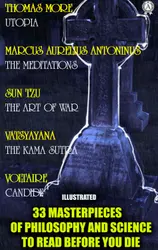
33 Masterpieces of Philosophy and Science to Read Before You Die (Illustrated) : Utopia, The Meditations, The Art of War, The Kama Sutra, Candide
Thomas More, Marcus Aurelius Antoninus, Sun Tzu, Vatsyayana, Voltaire, Edwin A. Abbott, Aristotle, Dale Carnegie, Gilbert Keith Chesterton, René Descartes, Epictetus, Sigmund Freud, Hermann Hesse, David Hume, Lao Tzu, David Herbert Lawrence, Niccolò Machiavelli, John Mill, Prentice Mulford, Friedrich Nietzsche, Plato, Bertrand Russell, H.G. Wells, Frances Bacon
book
Harvard on the Beach : The Complete 71 Volumes of Harvard Classics (The Five Foot Shelf & The Shelf of Fiction): The Infamous Anthology of the Greatest Works of World Literature
George Gordon Byron, Johann Wolfgang von Goethe, Christopher Marlowe, Benjamin Franklin, John Woolman, William Penn, Plato, Epictetus, Marcus Aurelius, Francis Bacon, John Milton, Thomas Browne, Ralph Waldo Emerson, Robert Burns, Saint Augustine, Thomas à Kempis, Aeschylus, Sophocles, Euripides, Aristophanes, Marcus Tullius Cicero, Pliny the Younger, Adam Smith, Charles Darwin, Plutarch, Virgil, Miguel de Cervantes, John Bunyan, Izaak Walton, Aesop, Wilhelm Grimm, Jacob Grimm, Hans Christian Andersen, John Dryden, Richard Brinsley Sheridan, David Garrick, Oliver Goldsmith, Percy Bysshe Shelley, Robert Browning, Dante Alighieri, Alessandro Manzoni, Homer, Richard Henry Dana, Edmund Burke, John Stuart Mill, Thomas Carlyle, Pedro Calderón de la Barca, Pierre Corneille, Jean Racine, Molière, Gotthold Ephraim Lessing, Friedrich von Schiller, Philip Sidney, Ben Jonson, Abraham Cowley, Joseph Addison, Richard Steele, Jonathan Swift, Daniel Defoe, Samuel Johnson, David Hume, Sydney Smith, Samuel Taylor Coleridge, William Hazlitt, Leigh Hunt, Charles Lamb, Thomas De Quincey, Thomas Babington Macaulay, William Makepeace Thackeray, John Ruskin
book
The Harvard Classics: Complete 51-Volume Collection : The Greatest Works of World Literature
Benjamin Franklin, Edmund Burke, Plato, Marcus Aurelius, William Shakespeare, Homer, Friedrich von Schiller, William Makepeace Thackeray, John Ruskin, Robert Louis Stevenson, Edgar Alan Poe, Henry David Thoreau, Voltaire, Jean Jacques Rousseau, Immanuel Kant, Thomas Hobbes, John Woolman, William Penn, Epictetus, Francis Bacon, John Milton, Thomas Browne, Ralph Waldo Emerson, Robert Burns, Saint Augustine, Thomas à Kempis, Aeschylus, Sophocles, Euripides, Aristophanes, Marcus Tullius Cicero, Pliny the Younger, Adam Smith, Charles Darwin, Plutarch, Virgil, Miguel de Cervantes, John Bunyan, Izaak Walton, Aesop, Wilhelm Grimm, Jacob Grimm, Hans Christian Andersen, John Dryden, Brinsley Sheridan, David Garrick, Oliver Goldsmith, Percy Bysshe Shelley, Robert Browning, George Gordon Byron, Johann Wolfgang von Goethe, Christopher Marlowe, Dante Alighieri, Alessandro Manzoni, Richard Henry Dana, John Stuart Mill, Thomas Carlyle, Pedro Calderón de la Barca, Pierre Corneille, Jean Racine, Molière, Gotthold Ephraim Lessing, Philip Sidney, Ben Jonson, Abraham Cowley, Joseph Addison, Richard Steele, Jonathan Swift, Daniel Defoe, Samuel Johnson, David Hume, Sydney Smith, Samuel Taylor Coleridge, William Hazlitt, Leigh Hunt, Charles Lamb, Thomas De Quincey, Thomas Babington Macaulay, James Russell Lowell, Michael Faraday, Hermann Ludwig Ferdinand von Helmholtz, Simon Newcomb, Archibald Geikie, Benvenuto Cellini, Michel de Montaigne, Charles Augustin Sainte-Beuve, Ernest Renan, Giuseppe Mazzini, Herodotus, Tacitus, Francis Drake, Philip Nichols, Francis Pretty, Walter Bigges, Edward Haies, Walter Raleigh, René Descartes, Jean Froissart, Thomas Malory, William Henry Harrison, Niccolo Machiavelli, William Roper, Thomas More, Martin Luther, John Locke, George Berkeley, Hippocrates, Ambroise Paré, William Harvey, Oliver Wendell Holmes, Joseph Lister, Louis Pasteur, Thomas Dekker, Francis Beaumont, John Fletcher, John Webster, Philip Massinger, Blaise Pascal, William A. Neilson
book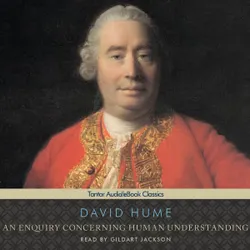
An Enquiry Concerning Human Understanding
David Hume
audiobookbook
The History of England Volume 5 : James I and Charles I
David Hume
audiobook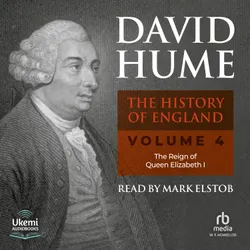
The History of England Volume 4 : The Reign of Queen Elizabeth I
David Hume
audiobook
The History of England Volume 3 : From Henry VII to Mary
David Hume
audiobook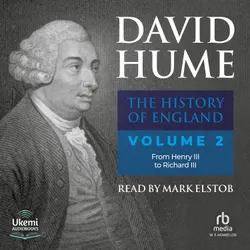
The History of England Volume 2 : King Henry III to King Richard III
David Hume
audiobook
The History of England Volume 1 : From the Invasion of Julius Caesar to King John
David Hume
audiobook
An Enquiry Concerning the Principles of Morals and Other Works
David Hume
audiobook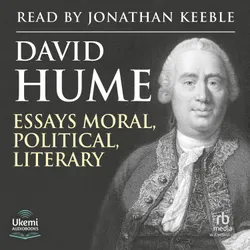
Essays, Moral, Political, and Literary
David Hume
audiobook
The History of England (Complete 6 Volumes) : A Critical Analysis of England's Past: Hume's Intellectual Insights
David Hume
book
